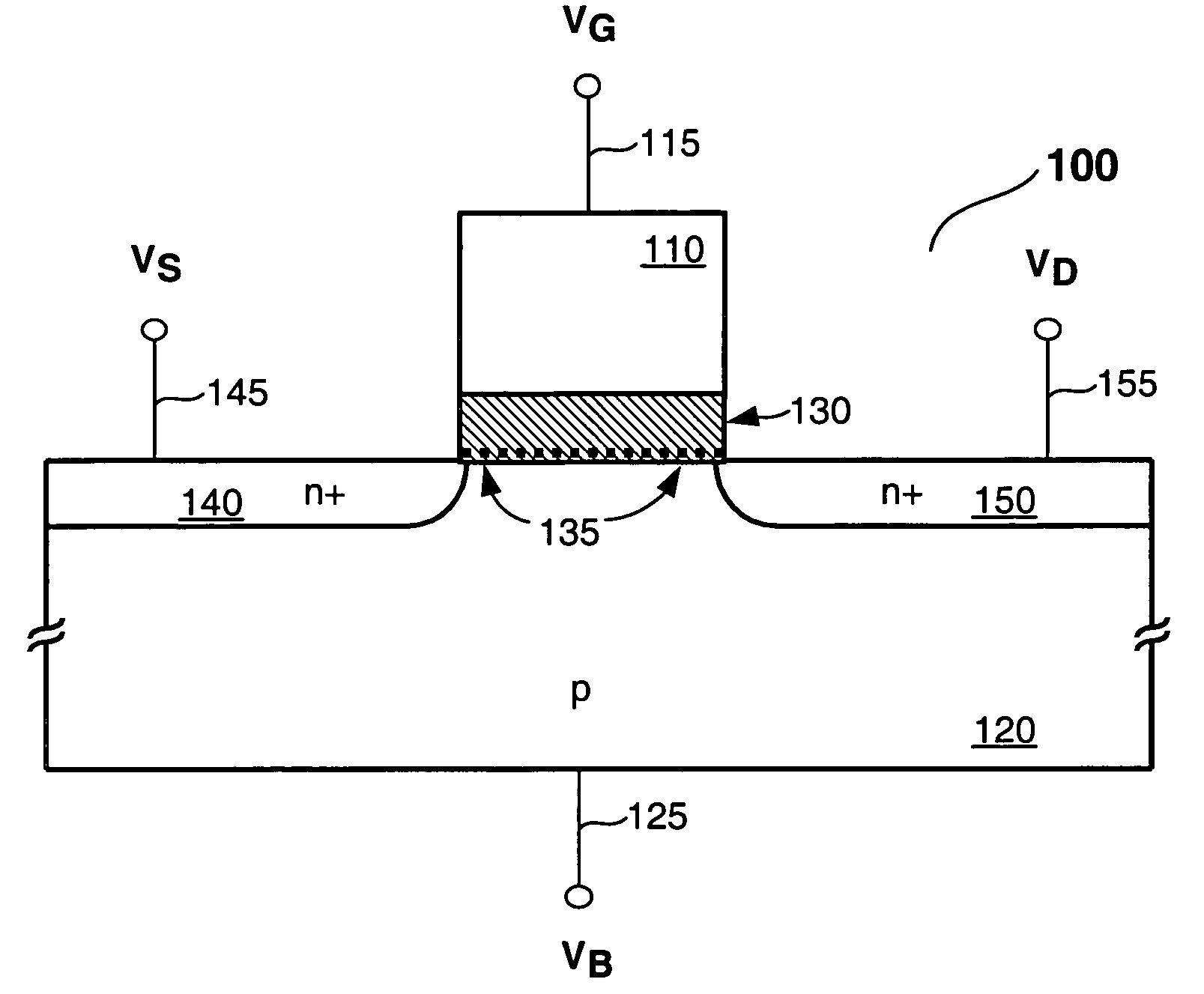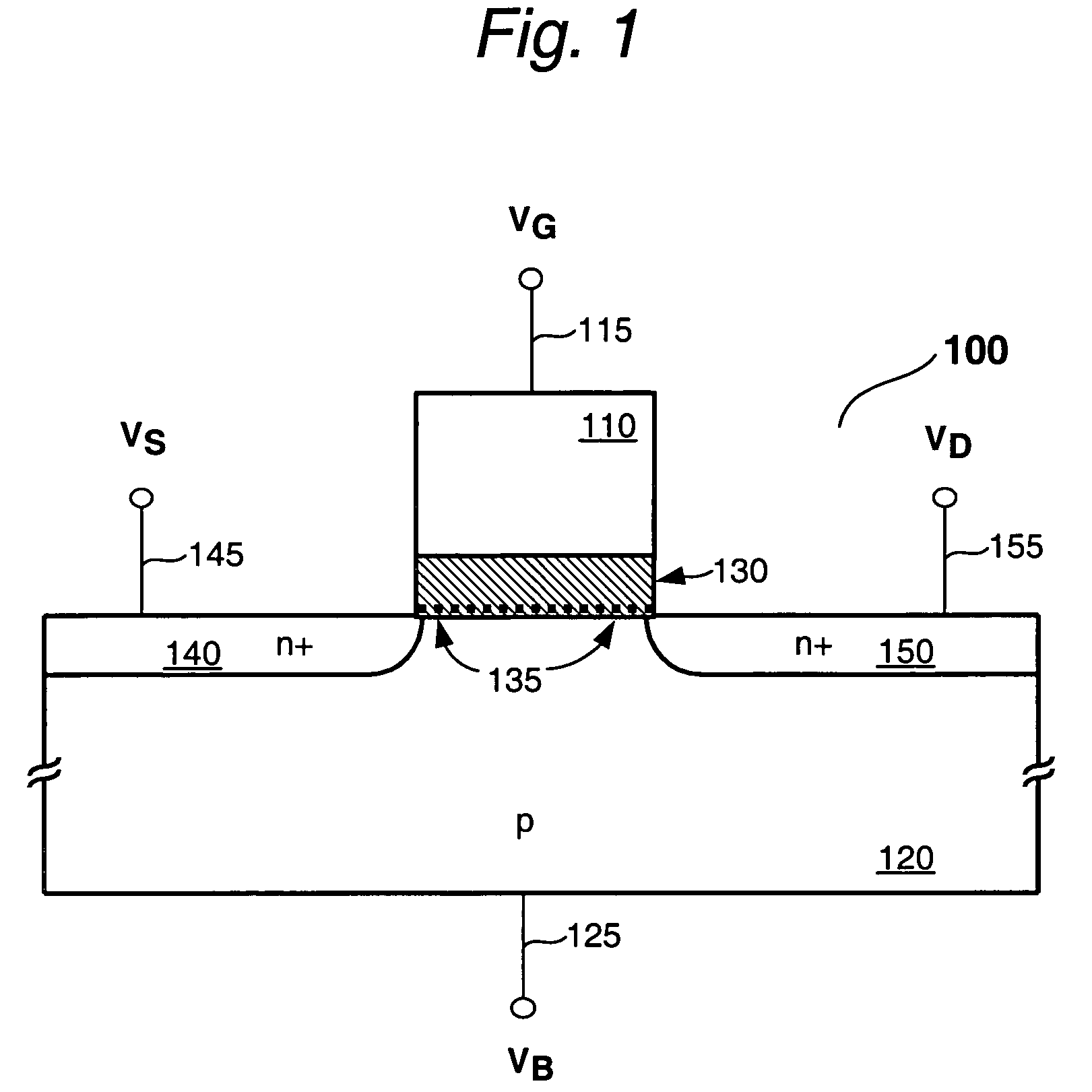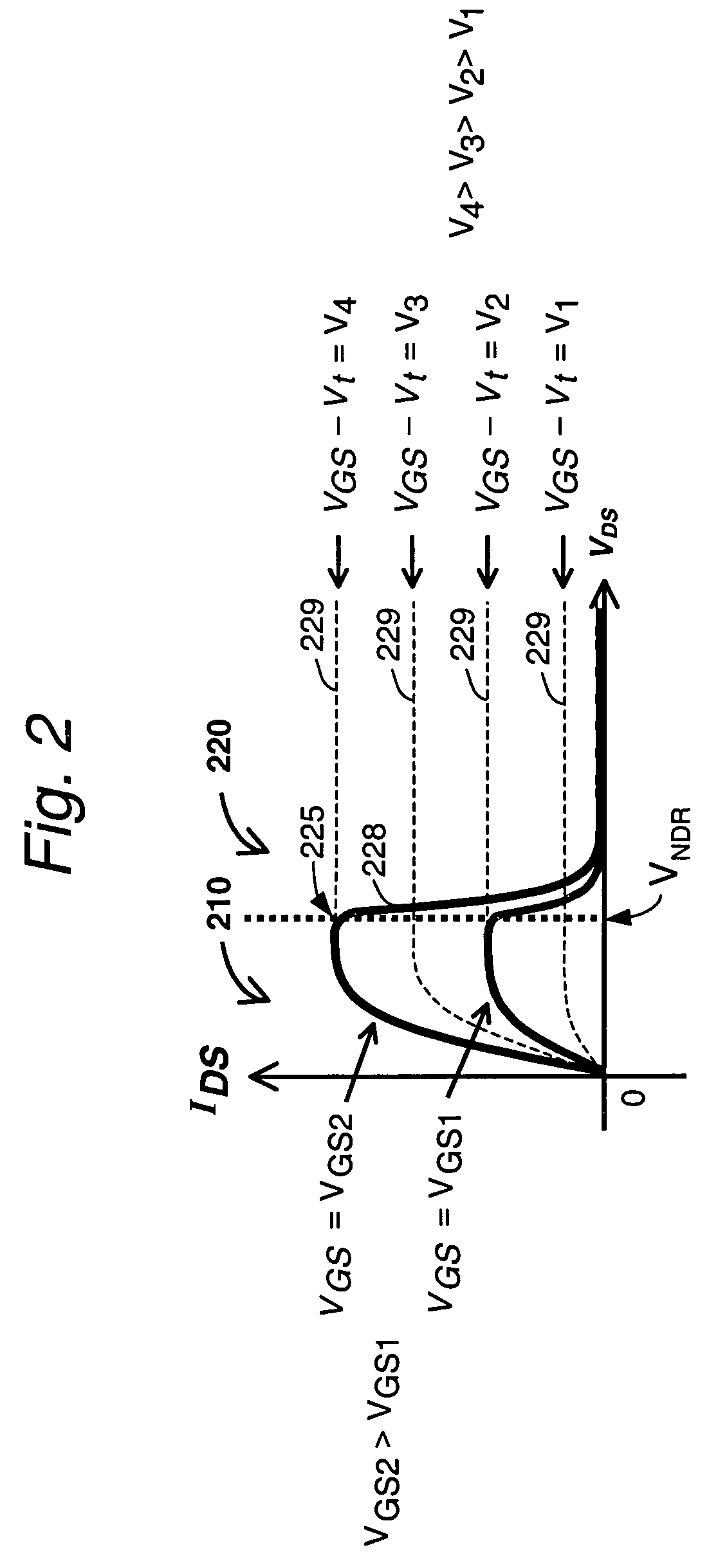CMOS process compatible, tunable negative differential resistance (NDR) device and method of operating same
a negative differential resistance and process technology, applied in the field of semiconductor devices, can solve the problems of preventing the widespread use of rtd devices in conventional silicon-based integrated circuits, -scale commercialization, and the challenge of integrating high-performance ndr devices into a conventional ic fabrication process
- Summary
- Abstract
- Description
- Claims
- Application Information
AI Technical Summary
Benefits of technology
Problems solved by technology
Method used
Image
Examples
Embodiment Construction
[0053]The following detailed description is meant to be illustrative only of particular embodiments of the invention. Other embodiments of the invention and variations of those disclosed will be obvious to those skilled in the art in view of the following description.
[0054]As discussed below, a preferred device embodiment is described first. Next, the mechanism responsible for the negative differential resistance (NDR) mode is described, followed by additional preferred embodiments for enhancing the performance of an NDR device. Finally, an exemplary method of fabrication will be described.
[0055]In accordance with a preferred embodiment of the invention, an n-channel MISFET NDR device structure (FIG. 1) 100 is provided which is made with minimum modification to a standard CMOS process. In fact, from a first glance, device 100 appears to be an ordinary n-channel MOS (NMOS) transistor, in which a gate electrode 110 of the device is formed on top of a semiconductor substrate 120 and el...
PUM
 Login to View More
Login to View More Abstract
Description
Claims
Application Information
 Login to View More
Login to View More - R&D
- Intellectual Property
- Life Sciences
- Materials
- Tech Scout
- Unparalleled Data Quality
- Higher Quality Content
- 60% Fewer Hallucinations
Browse by: Latest US Patents, China's latest patents, Technical Efficacy Thesaurus, Application Domain, Technology Topic, Popular Technical Reports.
© 2025 PatSnap. All rights reserved.Legal|Privacy policy|Modern Slavery Act Transparency Statement|Sitemap|About US| Contact US: help@patsnap.com



